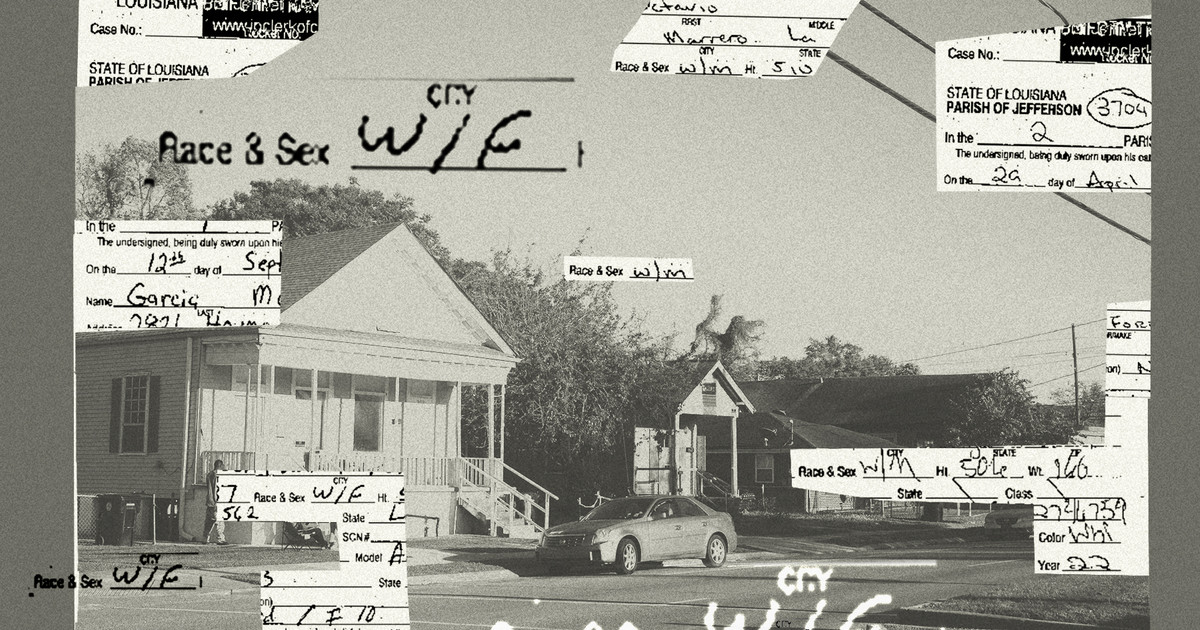
This article was produced for ProPublica’s Local Reporting Network in partnership with WRFK and WWNO. Sign up for Dispatches to get stories like this one as soon as they are published.
Join reporters from both newsrooms on Thursday, Dec. 2 for “Shielded,” a live virtual event about how law enforcement agencies shield themselves from accountability.
When sheriff’s deputies in Jefferson Parish, Louisiana, pulled over Octavio Lopez for an expired inspection tag in 2018, they wrote on his traffic ticket that he is white. Lopez, who is from Nicaragua, is Hispanic and speaks only Spanish, said his wife.
In fact, of the 167 tickets issued by deputies to drivers with the last name Lopez over a nearly six-year span, not one of the motorists was labeled as Hispanic, according to records provided by the Jefferson Parish clerk of court. The same was true of the 252 tickets issued to people with the last name of Rodriguez, 234 named Martinez, 223 with the last name Hernandez and 189 with the surname Garcia.
“If everybody’s white, there can’t be any racial bias,” Frank Baumgartner, a political science professor at the University of North Carolina of Chapel Hill, told WWNO/WRKF and ProPublica

This kind of misidentification is widespread — and not without harm. Across America, law enforcement agencies have been accused of targeting Hispanic drivers, failing to collect data on those traffic stops, and covering up potential officer misconduct and aggressive immigration enforcement by identifying people as white on tickets.
Read More:














Especially a problem because the current standard that the Supreme Court has made for an INDIVIDUAL to sue for discrimination they must prove SYSTEMIC bias. State laws may be different, but if the state hasn’t changed it in favor of the citizen, that’s the default. Can’t remember the case name at the time, it was a black dude who got pulled over in Maryland,